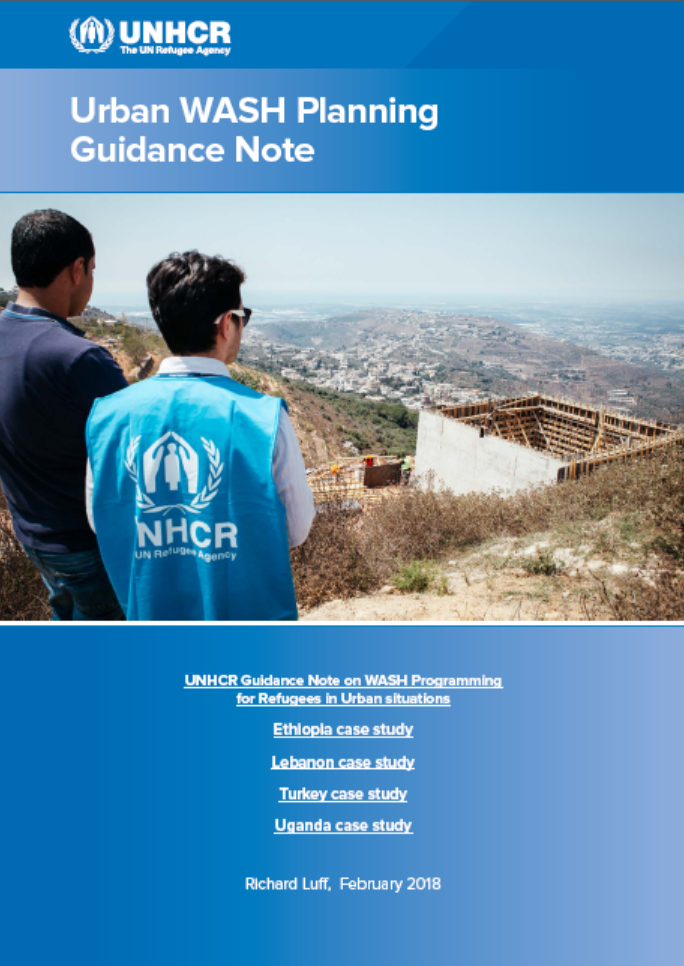
The following is a rapid checklist of key WASH preparedness and response activities for COVID-19 to support regional and country operations in planning and resource mobilization. These are based on WHO technical guidelines and UNHCR guidance for operations and where relevant operation or site level outbreak preparedness and response plans.

These brief guidelines are prepared primarily for UNHCR WASH staff and partners in response to refugees living “out of formalised camps” in urban areas, though have applicability to those in camps in urban areas too.

Where required, UNHCR and WASH actors should work together to develop a country level refugee WASH strategy document that clearly describes the refugee context and the baseline WASH situation, along with short, medium and long-term strategies for each of the WASH sub-sectors. This template can be used to help produce a short and concise Country level WASH Strategy. It includes a phased approach, HR requirements and site-level Operational Plans.

This adjoining document provides a brief summary of the key actions necessary for addressing MHM during emergencies. It serves as a quick read to gain a basic understanding of a complete MHM response. However, it is advised to review the complete guide when designing programs or developing response activities.
Publisher: UNHCR Year: 2020 Use the KAP Mapper to analyze your data on a map.
Publisher: UNHCR Year: 2018

Publisher: UNHCR Year: 2017 Description: This document describes UNHCR’s five principles linking WASH, protection, and accountability. It highlights the protection and accountability challenges that relate to WASH issues in refugee contexts. The document also provides case studies to high these principles in action and a checklist that can be used for safety and security.

This report is based on a desk-based review of secondary data, comprising published material as well as grey literature, supplemented with key informant interviews for programmes that lacked documentation. Section One summarises the current use of CBI in WASH programming. Section Two summarises the best practices and lessons learned including challenges faced, drawing on evidence from the project examples found. Section Three provides recommendations and best practice guidance for use of CBI in refugee settings. Section Four details existing tools and guidance.
Tags: Capacity Building, CASH Interventions, Cross Cutting, Cross Cutting, Cross Cutting, WASH Assessments, WASH Assessments, WASH Assessments, WASH Programme Management, WASH Strategy Development, and WASH Strategy Development. Languages: English, English, English, English, English, English, English, and English. Organisations: UNHCR, UNHCR, UNHCR, UNHCR, UNHCR, and UNHCR. Categories: WASH Guidelines, WASH Operational Guidelines, WASH Operational Guidelines, WASH Policy Guidelines, WASH Policy Guidelines, WASH Policy Guidelines, and WASH Research Documents.

Constructing, or repairing, boreholes requires specialized knowledge and technical expertise, much of which can be gained from the standard literature; but field operations in remote areas or in difficult conditions often require flexibility and imagination in avoiding and solving technical problems. This review is intended as a decision-making tool to assist in making cost-effective choices between borehole drilling methods, and in deciding whether to drill new boreholes or rehabilitate existing sites.
Tags: Boreholes, Drilling, Groundwater, Handpumps, Water Prospection and Investigation, Water Pumping, and Water Supply. Organisations: ICRC. Categories: WASH Reference Documents, WASH Reference Documents, WASH Reference Documents, WASH Reference Documents, WASH Reference Documents, and WASH Reference Documents.







